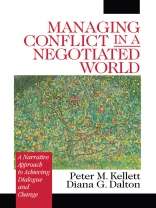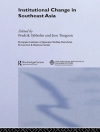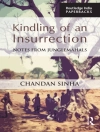Peter Kellett and Diana Dalton set out in this text to address the question: How do people manage conflict effectively? This is a simple question with an elusive and complex answer. To determine how to manage conflict one must first understand the meaning of conflict for those engaged in it. The authors do this by presenting a step-by-step guide to describing, interpreting, understanding and managing conflict. Using real life narratives, they explain how and why conflict occurs and strategies that one can deploy to manage the conflict. These interpretive and dialogic skills are illustrated clearly through the pairing of personal narratives with relevant discussion questions and challenging exercises. The first part of the book aims to equip readers with the ability to collect, analyze, and learn from conflicts from the perspective of developing more dialogic relationships. The second part enables the reader to apply this interpretive process to several communication contexts. With their thorough coverage of conflict management issues and their engaging writing style, Peter Kellett and Diana Dalton compel readers to examine their own conflicts for opportunities to learn, grow, communicate and change.
Table des matières
Introduction
PART ONE: UNDERSTANDING CONFLICT NARRATIVES
Conflict and Dialogue in a Negotiated World
Conflict Narratives as a Good Place to Start
Representing Self, Other and Context
Ways of Constructing and Interpreting Conflict Narratives
PART TWO: CHANGING RELATIONSHIPS THROUGH NARRATIVE
Managing Conflict in Our Communities
Managing Conflicts at Work
Managing Conflict in Family Relationships
Managing Conflict in Interpersonal Relationships
A propos de l’auteur
Peter M. Kellett (Ph.D., Southern Illinois University) is Associate Professor and Head of the Department of Communication at the University of North Carolina at Greensboro. His research, teaching, and service focus on the narrative analysis and dialogic management of conflict as this helps people build healthier, more productive and peaceful relationships. His most recent publication is, “Dialectical Tensions and Dialogic Moments as Pathways to Peak Experiences” (with H.L. Goodall, Jr.), in R. Anderson, L.A. Baxter, & K.N. Cissna (2004), Dialogue: Theorizing Differences in Communication Studies. Thousand Oaks, CA: Sage Publications.












